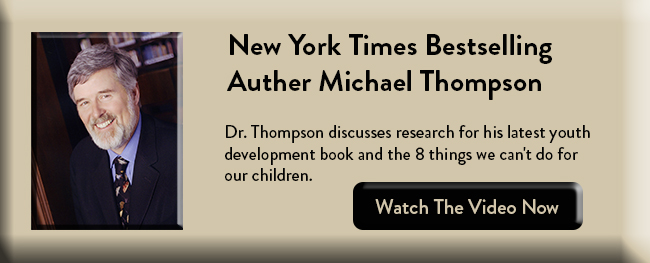EFFECTIVE DISCIPLINE TECHNIQUES FOR CHILDREN: Part 2
This Blog is Part of our Counselor Training Series, see note below*
[In Part 1, we discussed how we train counselors to approach discipline and how to recognize the root causes of misbehavior. Now we discuss how to address misbehavior after it happens.]
How Our Summer Camp Counselors Address Discipline
 If the purpose of discipline is to teach better alternative behaviors, then the best approach is to start by asking questions.
If the purpose of discipline is to teach better alternative behaviors, then the best approach is to start by asking questions.
The common response to a disciplinary situation is for an adult to want to talk to the perpetrator and immediately explain why that behavior is not acceptable. This stems from good intention, but completely fails to take into account the processes occurring in the child's brain.
If the adult response is immediate, the child is still likely upset about whatever went wrong and is therefore not in a receptive listening state. If the adult response is delayed, the child has had time to worry about the possible consequences and may be fearing retribution, which is also counterproductive to learning. Worst of all, a reactive adult will raise his or her voice, and the child will simply hear anger rather than words. Once again, we have to coach our counselors that they cannot expect an 8-year old to have the emotional resilience or social skills that we might expect an adult to possess.
So if talking immediately is ineffective, and talking later is ineffective, what option does that leave? Our favorite is the pattern interrupt.
How to start the discipline process by asking questions
Most children have learned at a young age that bad behavior will result in a talking to, and probably some form of punishment. This tends to soothe the needs of the adults trying to manage the behavior, but doesn't always help the child learn effectively.
Imagine that you are a young child who has just broken a rule or been involved in a small fight. Your favorite counselor is now upset and has asked you to sit down away from the rest of the group. You're now dreading the lecture and certain punishment that will follow. But instead, your counselor walks over, sits down, and calmly asks, “So how did we get into this situation?” He or she then waits for you to answer.
This approach accomplishes a number of things. First, it creates a moment for the emotions of the situation to settle. Now we can just talk and reflect. Second, it makes the camper actually think. It doesn't require much to sit through a lecture, but it does take actual processing and learning to answer questions. We already know that the counselor knows what should have been done differently, we want to know that the camper knows, too.
Finally, this approach models the emotional control that we hope campers will eventually grow into. We often remind our counselors that everything we do indirectly teaches a lesson, and we therefore want to model the behavior we want our campers to learn, either now or over time.
Other great questions that we train our counselors to use include the following:
- “What were you trying to accomplish by doing that?”
- “What did you think the result would be?”
- “Can you think of a better way to accomplish your goal next time?”
- “How can we make sure that we don't get into this situation again?”
All of these questions get the camper thinking and learning, which is the primary goal of addressing misbehavior. We have also avoided compounding the camper's frustration and embarrassment without letting them off the hook or releasing them from responsibility for their actions. The counselor can help with minor suggestions, but the bulk of the problem solving should be done by the camper.
This approach works extremely well for first or second offenses, but what about a chronic behavior problem that isn't improving? Click here to read Part 3 (coming out next week, check back). If you are interested in learning more about youth development, please click the link below to watch a presention on the 8 things we can't do for our children:
* We believe that the way we train our counselors is among the best in the country. We are writing this blog series to share parts of what we teach during our 12-day orientation, so that you can feel secure in trusting your child to the supervision of our counselor role models.
See the full series here: Counselor Training Series


